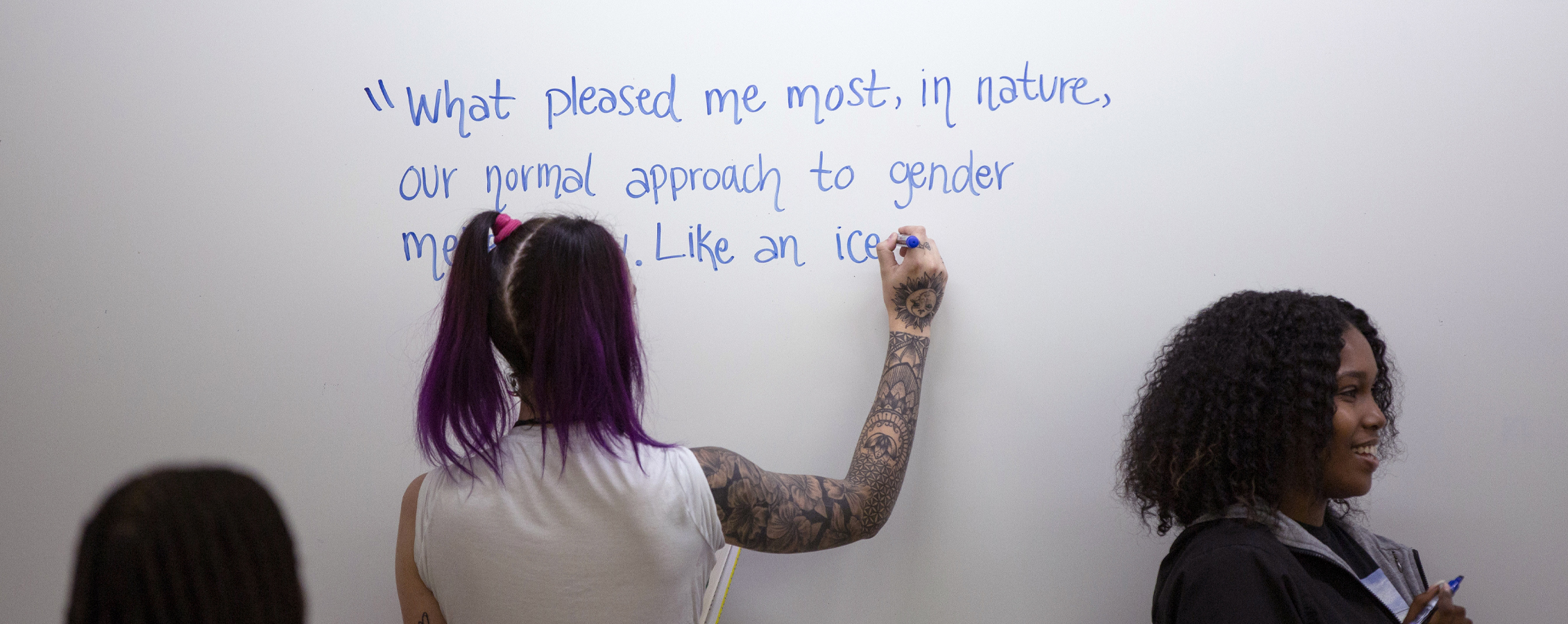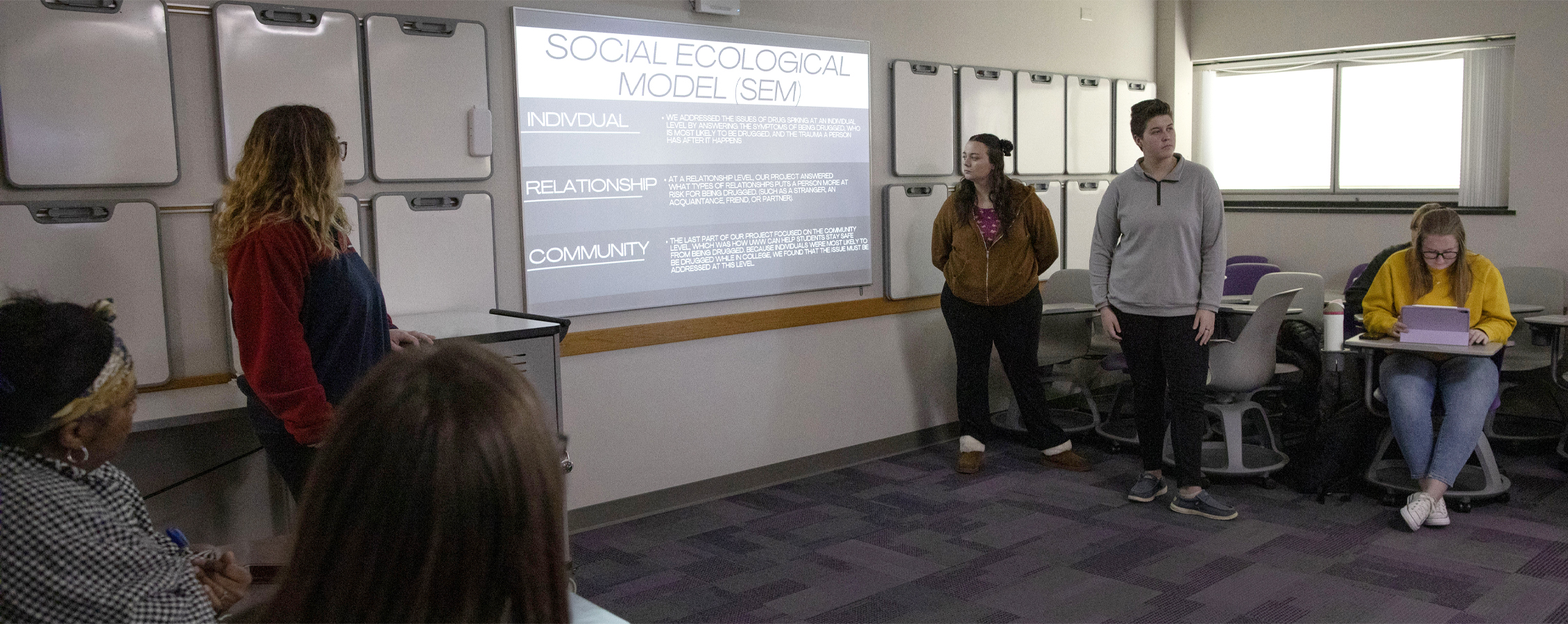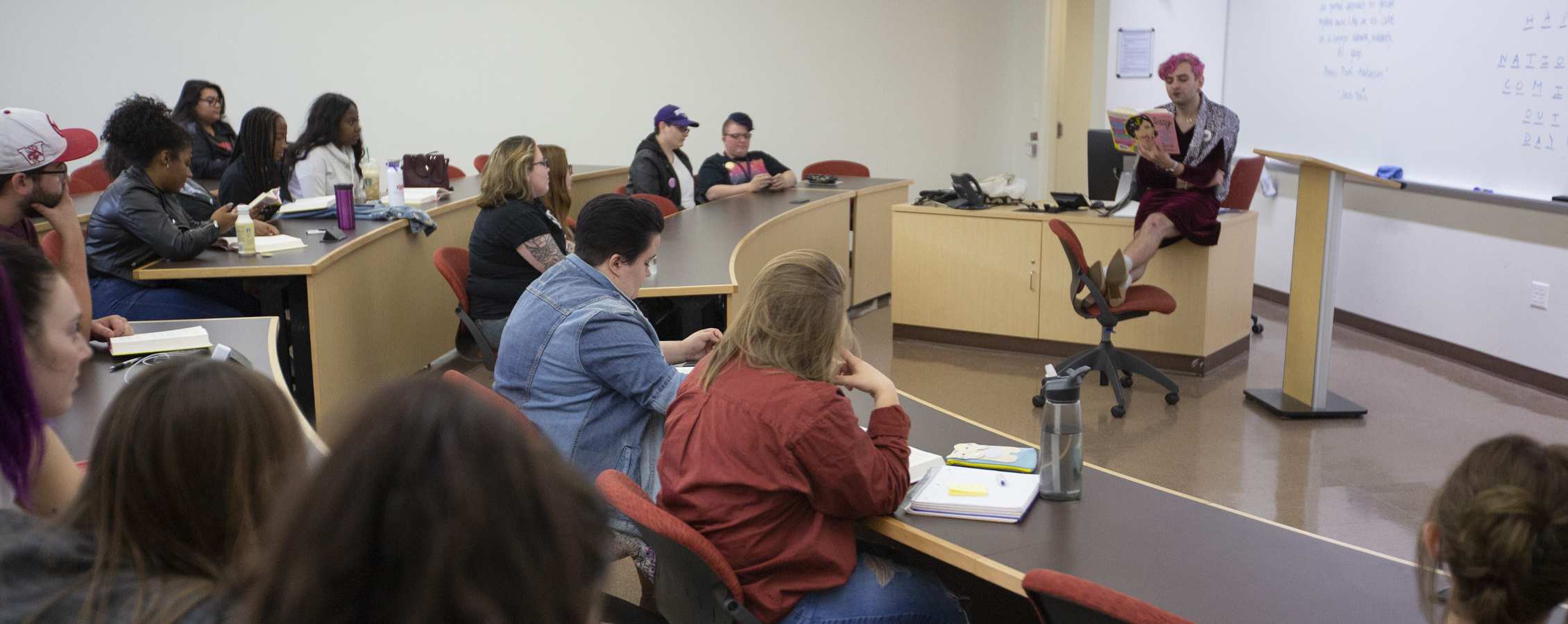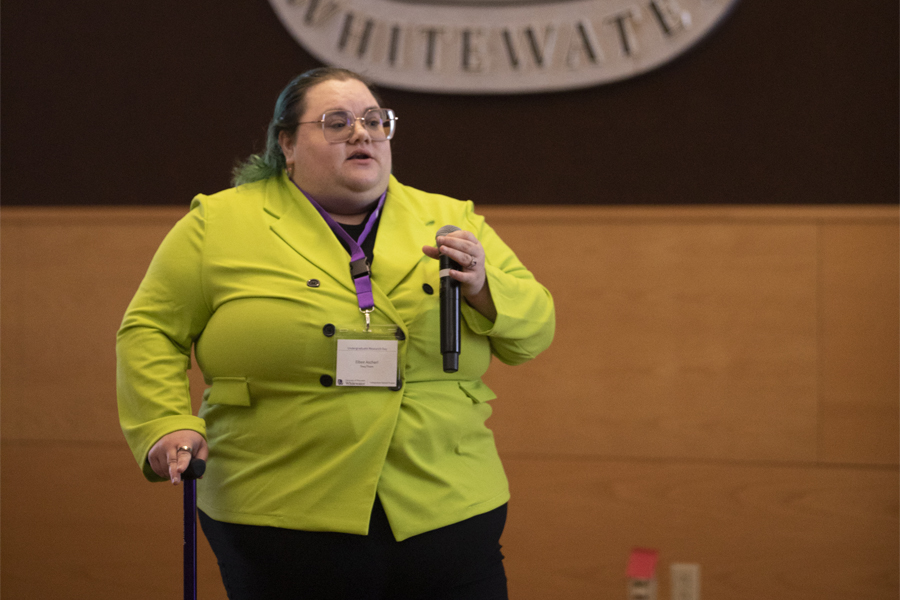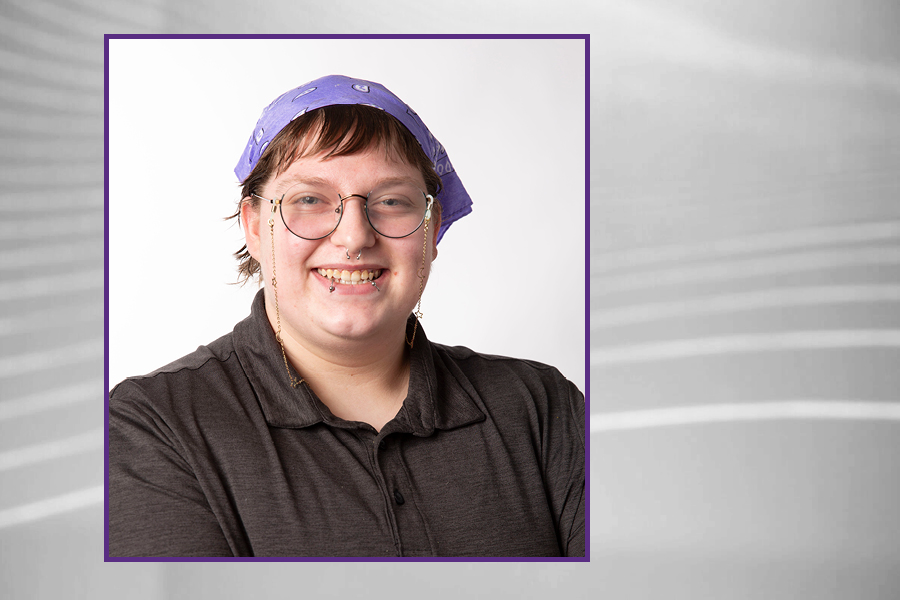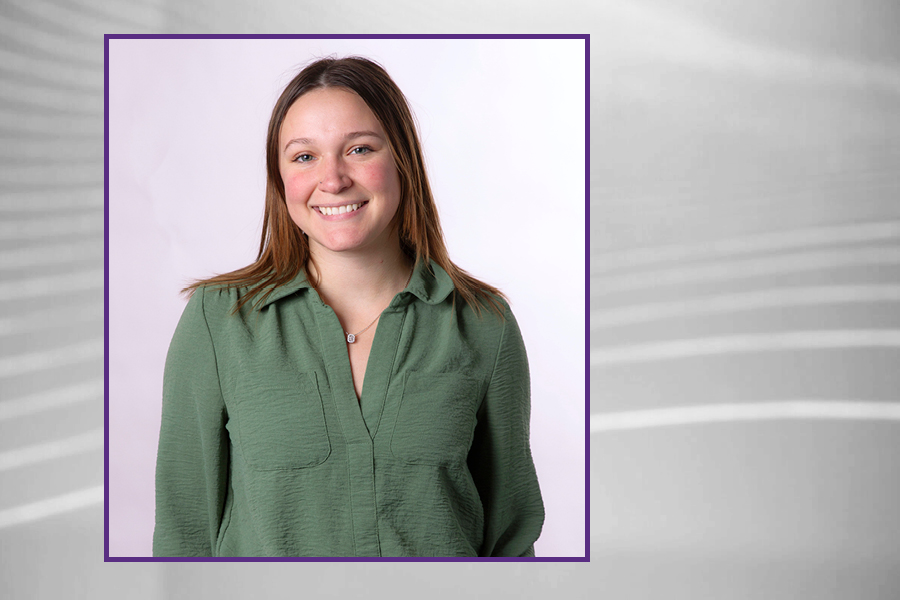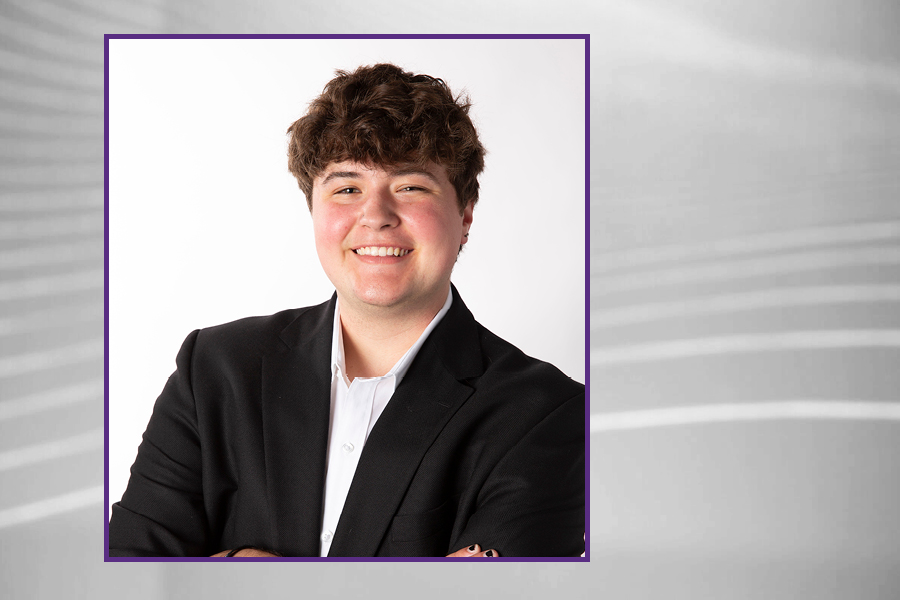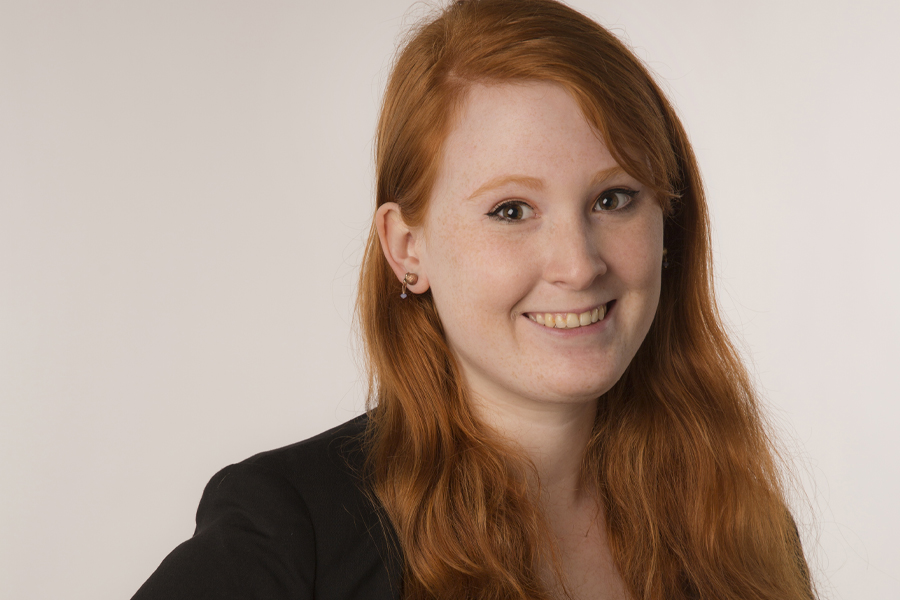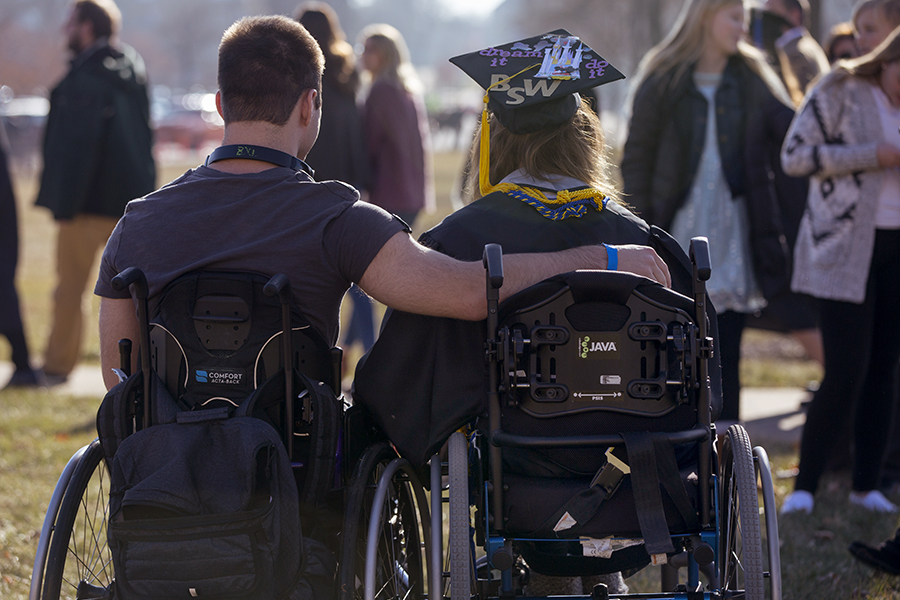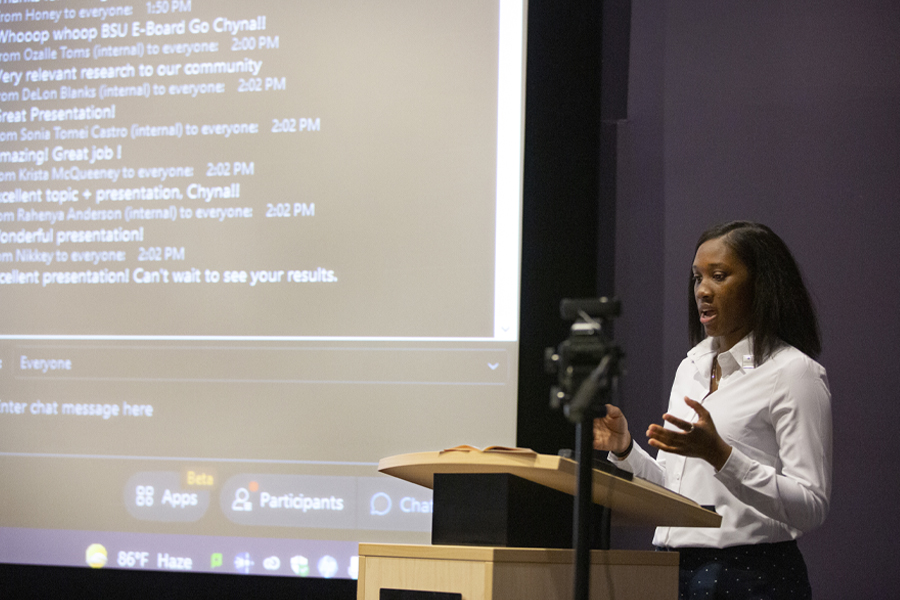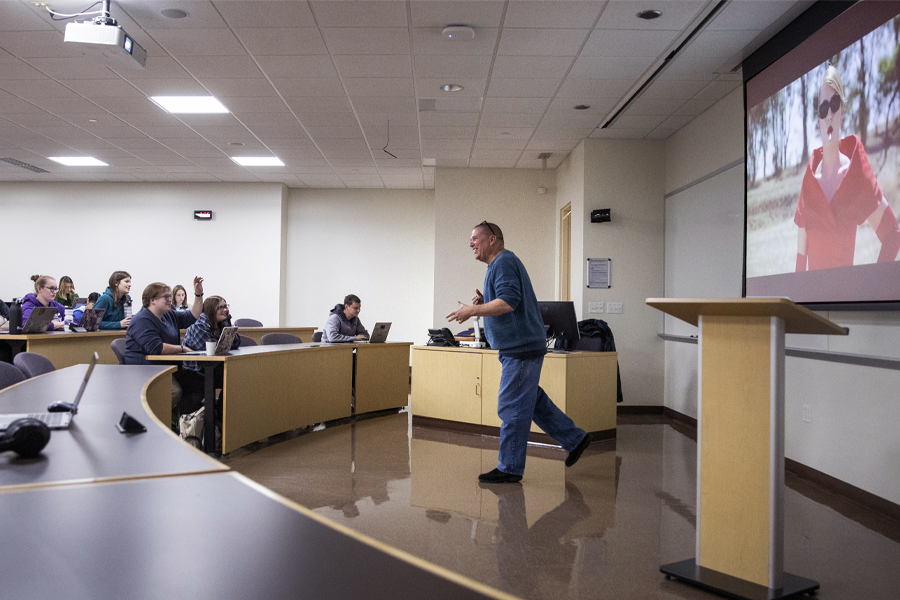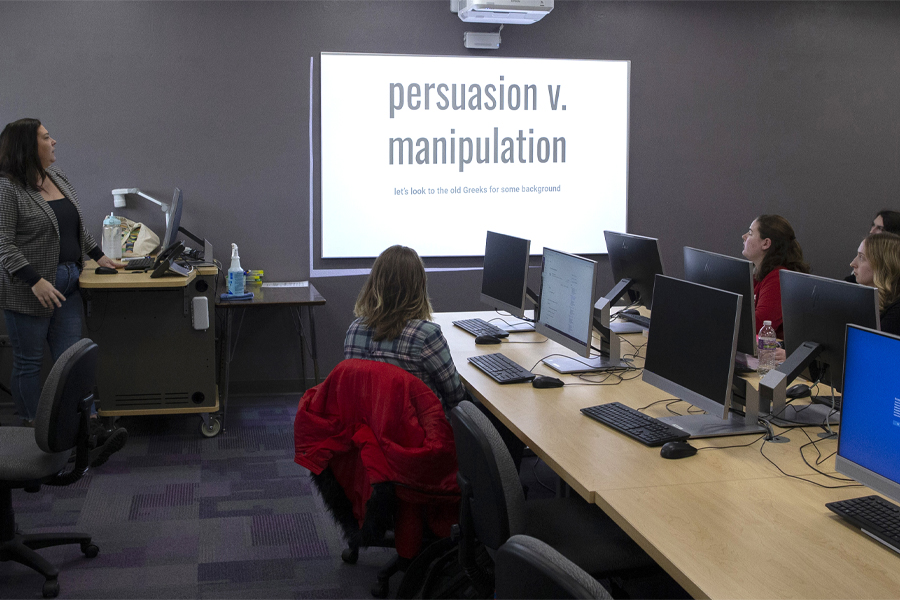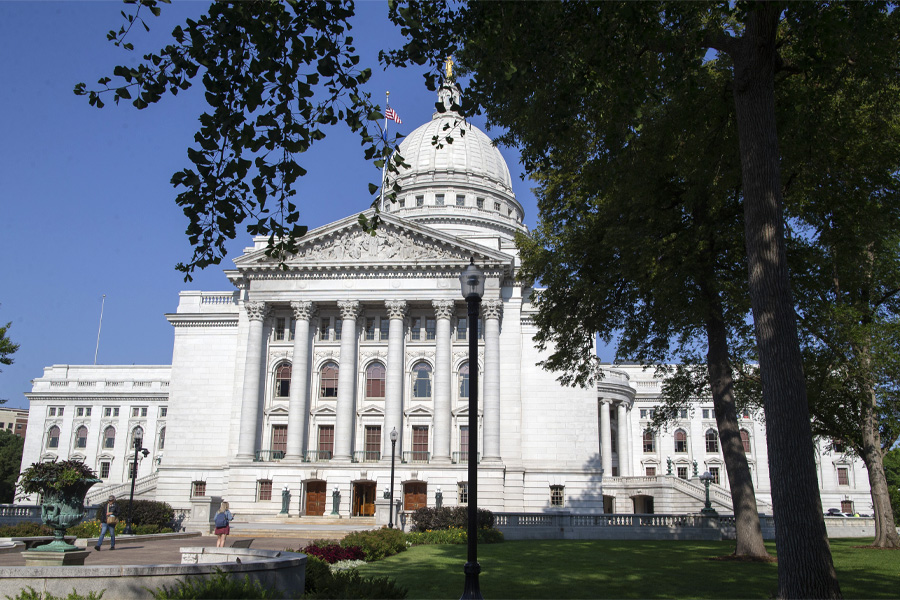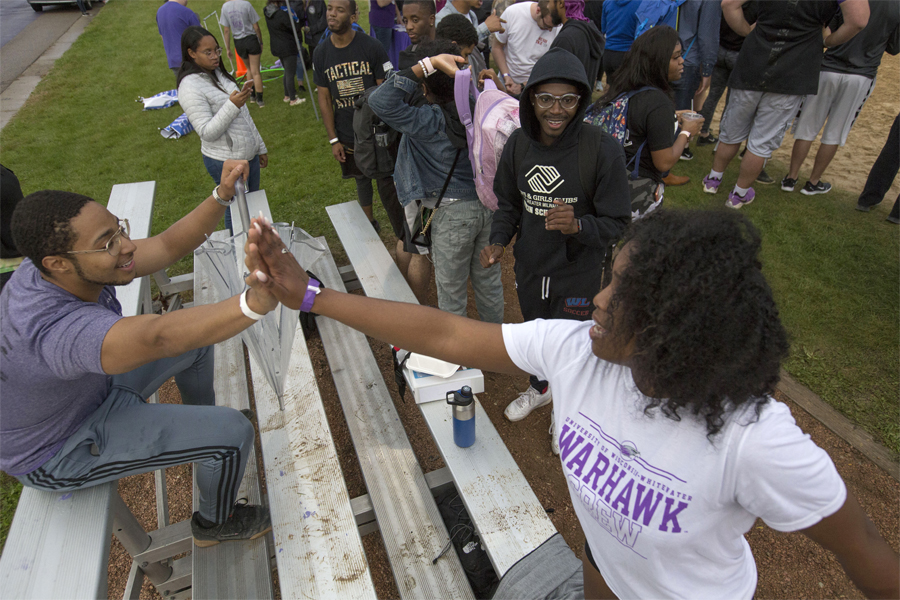WOMEN’S AND GENDER STUDIES
Bachelor's Degree Programs
Transform your perspective. Maximize your opportunities.
If you’re interested in becoming a more engaged, worldly citizen, then a Women’s and Gender Studies major might be for you.
An interdisciplinary field, Women’s and Gender Studies investigates how gender and sexuality intersect with race, class, ability, and other identities to shape everyday lives, institutions, and global communities. You’ll learn a variety of skills important in any career path, including intercultural competence, complex problem solving and analytical thinking.
Students with a Women’s and Gender Studies degree enter a wide range of professional fields, including management, educational instruction and library science, business and financial operations, and legal occupations. Over the next decade, the U.S. Bureau of Labor Statistics projects employment in these fields will continue to grow. Graduates of the program also pursue advanced degrees in a variety of subjects, including counseling, social work, education, healthcare, and business.
CAN WE BRAG A LITTLE?
Why study Women’s and Gender Studies at UW-Whitewater?
Over the last 50 years, the Women’s and Gender Studies program at UW-Whitewater has grown from one course to a dynamic department. WGS has options for students who want to major in the subject or for those who want a minor or certificate to complement a different degree.
No matter what your course of study, the Women’s and Gender Studies program will teach you several valuable skills as you navigate your career.
What you’ll learn:
- Critical thinking
- Written and oral communication
- Self-reflection skills
- Intercultural competence
What you’ll experience:
- High impact practices
- Dedicated advisors
- Inclusive student and faculty community
What you’ll gain:
- Employable skills
- Co-curricular opportunities
- Lifelong learning
In addition to the Women’s and Gender Studies major and minor, the following certificates are available for UW-Whitewater students to complete.
This certificate is designed to allow students, across the disciplines, to engage in in-depth diversity learning around issues of gender, race, ethnicity, class, sexuality and ability. The Diversity Leadership Certificate prepares students for living and working in a diverse society through curricular and co-curricular activities to enhance knowledge, develop facilitation skills, and engage in productive collaborations across differences.
Students in this certificate program will examine how gender, gender identity, and sexuality interact with ethnicity, race, class, and ability while exploring contemporary, cross-cultural, and historical issues related to LGBTQ lives. The LGBTQ Studies Certificate is intended for students who would benefit from a thorough introduction to LGBTQ Studies from various disciplinary perspectives.
This certificate is granted to students who complete 12 credits in approved Women’s and Gender Studies courses.
What our Women’s and Gender Studies students do
Campus and community involvement
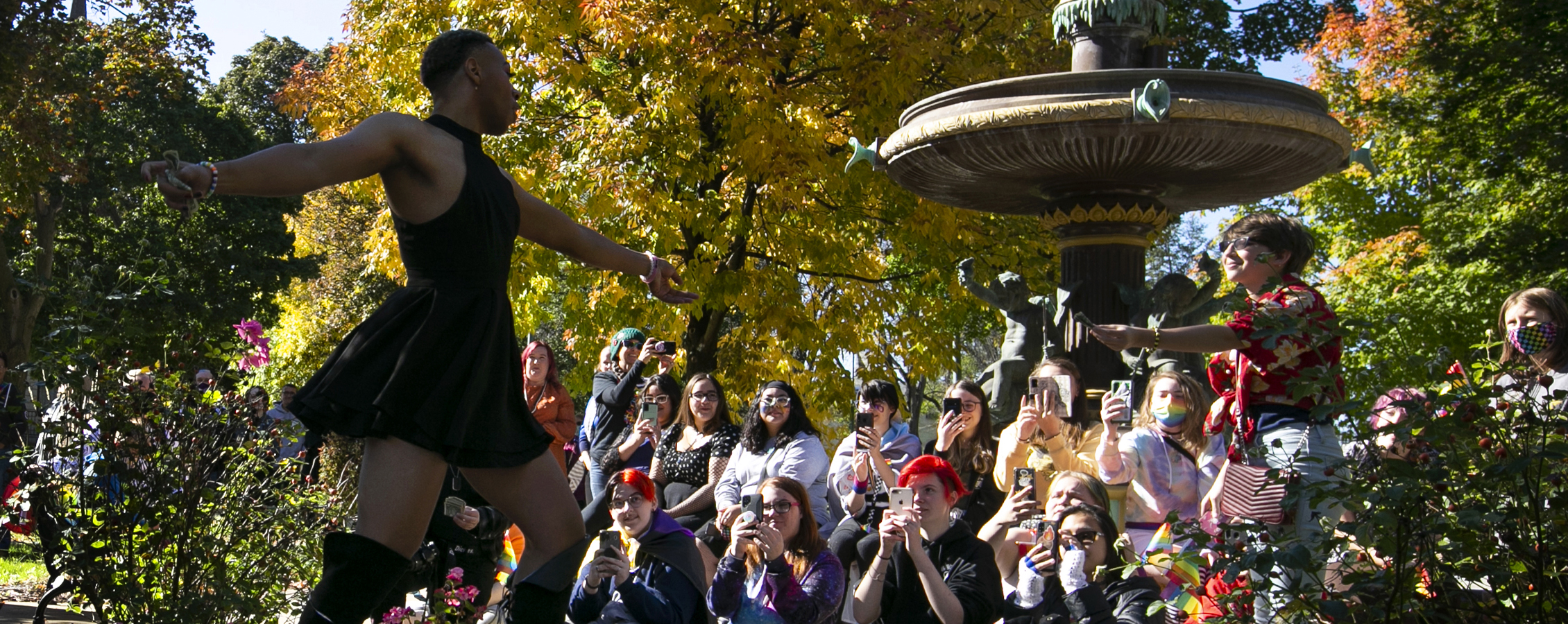
Women’s and Gender Studies majors may be interested in the following student organizations at UW-Whitewater:
Students Allied for a Green Earth (SAGE)
SAGE promotes ecological sustainability and awareness, democracy, cultural diversity, and social justice on campus, in the local community, and on a global level.
IMPACT
IMPACT is a student organization for all students of all gender expressions, sexual and romantic identities. It provides students with a safe, confidential, and open space for discussion, support and activism.
Coalition Against Sexual and Interpersonal Violence (CASIV)
CASIV is a group of UW-Whitewater students committed to raising awareness about sexual and dating violence, harassment and stalking.
Active Minds
Active Minds serves as an advocacy team to fight stigma and promote self-care. The group empowers young adults to speak openly about mental health to reduce stigma, encourage help-seeking, and prevent suicide.
Space and places: On and off campus
The PB Poorman Pride Center, located in UW-Whitewater’s University Center, offers an open and welcoming space for all LGBTQ+ and ally students to relax, study, and socialize. The Center employs student leaders to support the development of LGBTQ+ life and programming on campus, and to encourage mentorship. Several Women’s and Gender Studies majors have held internships in this space.
What our graduates do
Careers: What can you do with a Women’s and Gender Studies degree?
After earning their Women’s and Gender Studies degree, UW-Whitewater graduates can find a variety of positions. Women’s and Gender Studies jobs are available across multiple industries.
Here are some institutions and organizations where our alumni have gone on to work and/or study:
-
- University of Wisconsin-Madison
- University Health Services
- Morgridge Center for Public Service
- University of Florida
- Jacksonville University
- Texas A&M University
- Concordia University Wisconsin
- Advocate Good Samaritan Hospital (Downers Grove, Illinois)
- School District of Janesville
- University of Wisconsin-Madison
Job titles include:
-
- Social worker
- Anti-violence educator and advocate
- Community counselor
- Addiction counselor
- Doctor
- Sales representative
- Human resource administrator
- Intake clerk
- Entrepreneur
- Musician
- Educator
- Manager
- Librarian
- Non-profit coordinator
- Reproductive health advocate
- Rape crisis counselor
- Academic advisor
- University Housing complex director
- Social justice fellow
- LGBTQ coordinator
- Women’s center coordinator
Our Women’s and Gender Studies faculty
Core faculty members and affiliated faculty and staff in Women’s and Gender Studies care deeply about student learning, ensuring the inclusivity of our classrooms, and investing in our students’ success.
When you declare a Women’s and Gender Studies major, minor, or certificate, you will gain invested mentors from our department who will help you thrive at UW-Whitewater.
Want to learn more about earning a Women’s and Gender Studies degree?
262-472-2872 | womenst@uww.edu
UW-Whitewater offers the following Women’s and Gender Studies undergraduate options:
- Bachelor of Arts – Women’s and Gender Studies | 4-year-plan [PDF]
- Bachelor of Science – Women’s and Gender Studies | 4-year plan [PDF]
Minors:
Certificates:
In addition to UW-Whitewater’s general education requirements, as a Women’s and Gender Studies major, you’ll take a variety of core and elective classes that will vary based on your chosen areas of interest. Here’s an example of classes most Women’s and Gender Studies majors will take:
- Women: Race and Ethnicity
- Sex, Gender, and Health
- Feminist and Queer Theories
- Gender and Sexuality in Cross Culture Perspective
- Women in Music
- From Goddesses to Witches: Women in Premodern European History
- Gender Ethnicity and the Environment
- Gender and Violence
- Gender and Film
- Gender Law and Policy
To apply, you’ll complete the UW-Whitewater standard application for admission and indicate your interest in earning a Women’s and Gender Studies degree.

